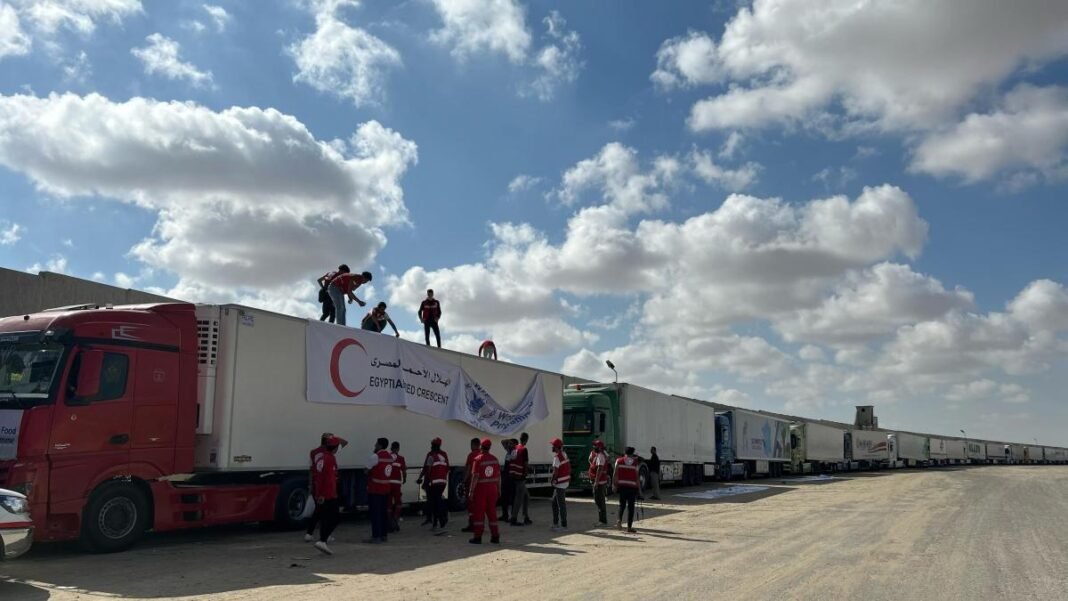Gaza, 28 November 2023 (TDI): The recent humanitarian pause between Israel and Hamas in Gaza has emerged as a driving force in intensifying aid efforts, providing a lifeline to the civilians in Gaza.
The agreed humanitarian pause, upheld by Israel and Hamas, persisted for the fourth consecutive day on November 27.
This ongoing pause has empowered humanitarian entities, primarily the Egyptian and Palestinian Red Crescent Societies, along with UN agencies, to enhance the delivery of assistance throughout Gaza.
Recognizing the extensive needs, aid groups are urgently advocating for the immediate re-opening of additional crossing points, including those for the entry of commercial goods.
November 27 saw the arrival of numerous aid trucks from The United Nations Relief and Works Agency for Palestine Refugees (UNRWA) and the Palestine Red Crescent Society (PRCS) in the northern areas of Wadi Gaza.
The delivered assistance comprised medical supplies, ready-to-eat food, wheat flour, bottled water, tents, and blankets. This aid was distributed to four UNRWA shelters and three primary warehouses for subsequent dispersal.
Also Read: Efforts for immediate ceasefire and political solution in Gaza
Additionally, small quantities of fuel were provided to water production facilities to facilitate their reactivation post-repair. Prior to the humanitarian pause, accessing the north was challenging, leaving residents in a precarious humanitarian situation.
As of November 27, 11 Israeli hostages detained in Gaza and 33 Palestinian detainees held in Israeli prisons were released.
Among the liberated hostages were two women and nine children, while the group of released Palestinian detainees comprised 30 boys and three women.
Since the initiation of the pause, a total of 150 Palestinians, 51 Israelis, and 18 foreign nationals have been released.
The exact total of trucks entering Gaza on November 27 remains uncertain as processing continued into the evening hours.
In addition to the aid convoys, the Rafah crossing with Egypt facilitated the departure of 34 wounded and sick individuals and 18 foreign nationals. It also allowed the entry of approximately 300 Gaza residents stranded in Egypt.
However, the Kerem Shalom crossing with Israel, formerly the primary entry point for goods, has remained closed.
On November 24, the Protection and Shelter Clusters issued a call for the immediate reopening of additional crossings, including those for the entry of commercial goods.
Mohammad Rizwan Ali is a dedicated final-year student pursuing a Bachelor's degree in Peace and Conflict Studies from NUML, Islamabad. In addition to his studies, he actively contributes to the field as a content writer and contributor at The Diplomatic Insight, showcasing his insightful perspectives on diplomacy, peace, and conflict resolution.



